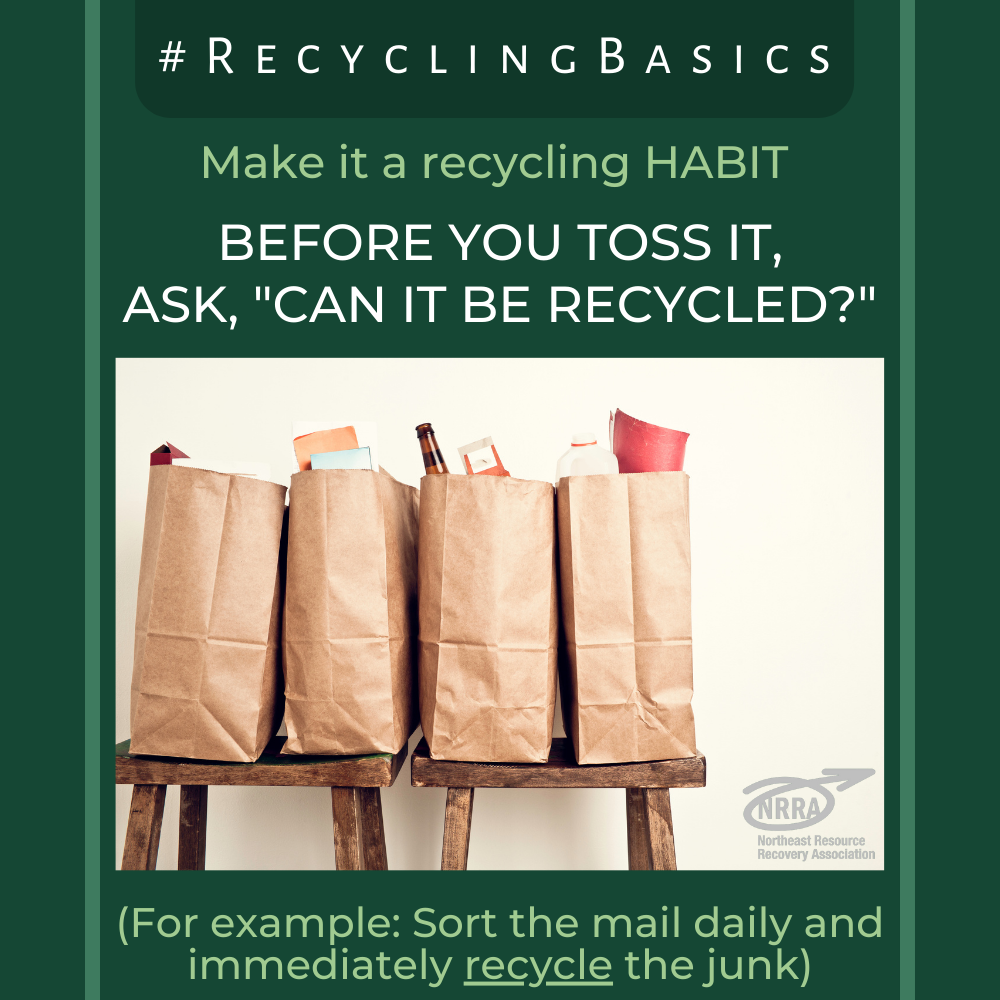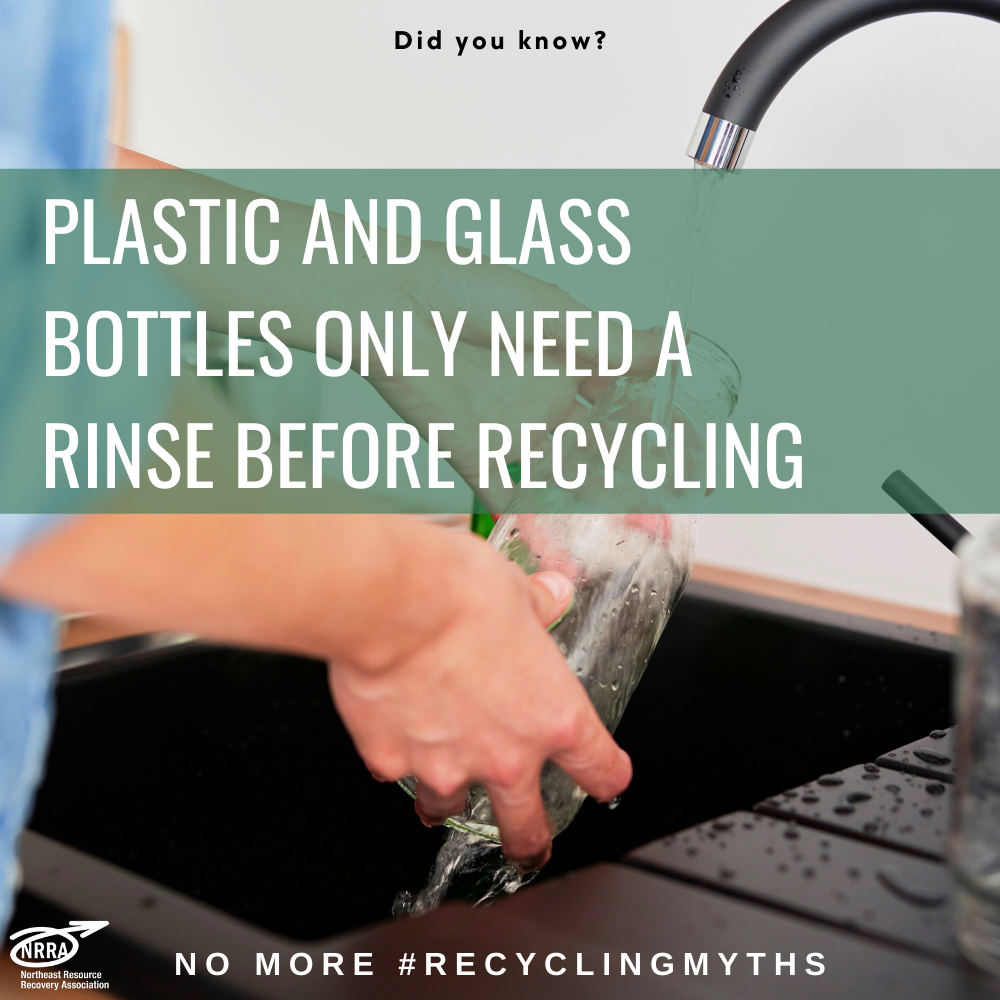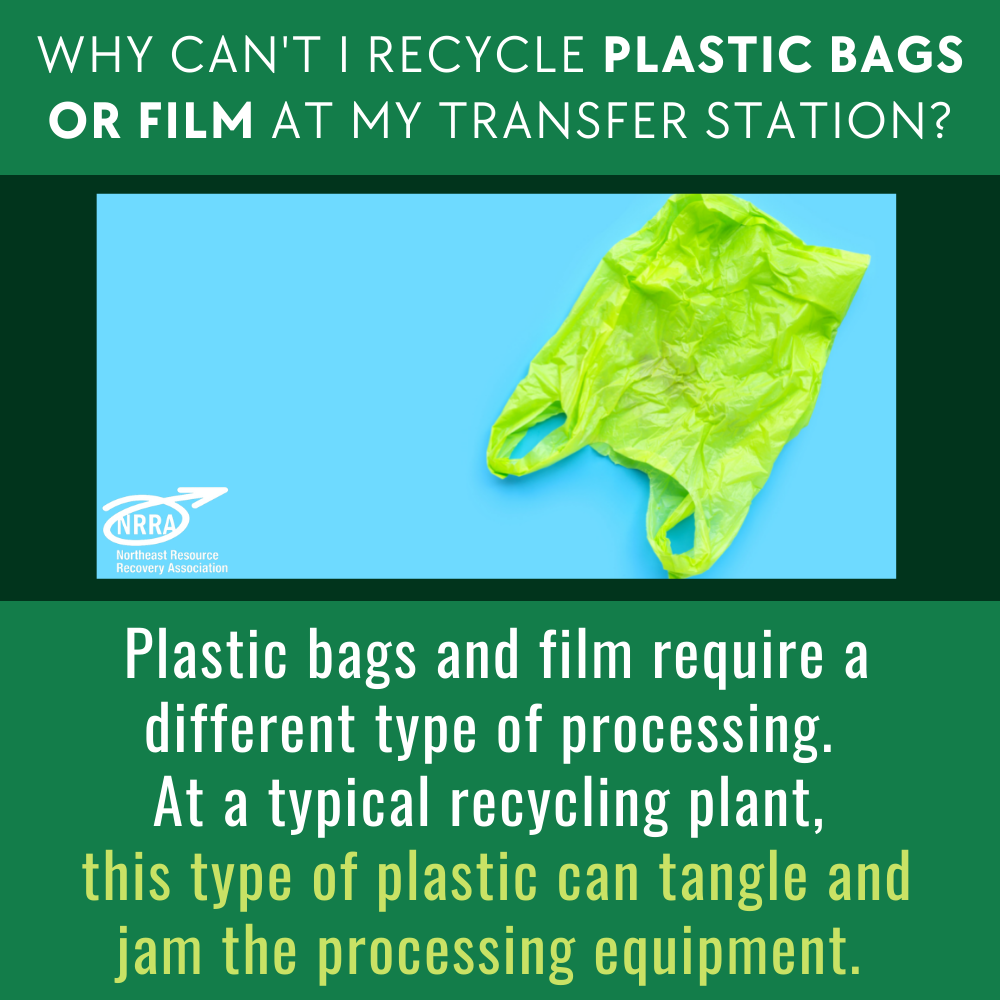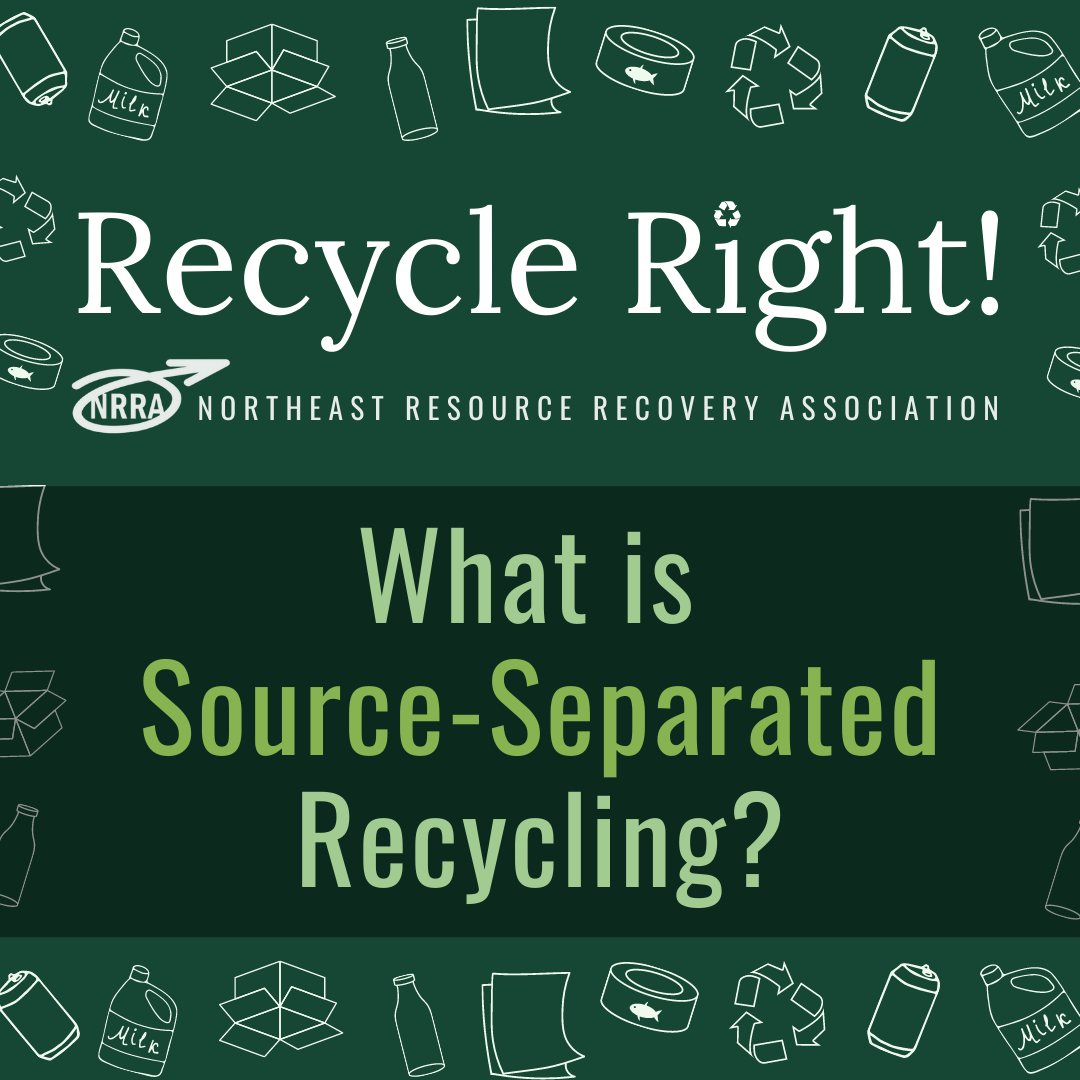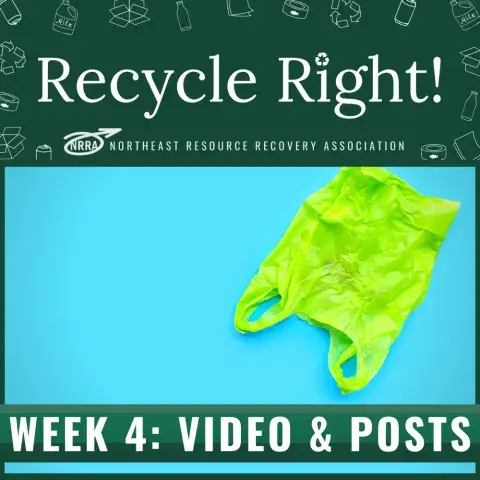
The Recycle Right Campaign is a 4-month social media campaign created and design FOR you, to be shared BY you!
In case you missed it, you can access: Week 1, Week 2, and Week 3 respectively.
You can share the campaign however you see fit - in emails, on websites, and across social media. The social posts you see below were posted on Facebook and Instagram. You can share them directly on social media, or download the images and text to use in your own Recycle Right Campaign. You can also sign up for the bi-weekly Recycle Right Campaign Newsletter, which is a compilation of 2 weeks-worth of posts and videos over the course of the full campaign, with 10 emails in total.
How to use the following image posts in 3 easy steps:
1. Drag the image onto your desktop or right-click and save it.
2. Upload the image to your email, website, or Instagram OR click the "SHARE" button to share the whole post on Facebook!
3. Copy and paste the text found below each image onto your post.
Bonus: Each post includes ready-made hashtags to be used on social media.
Social Posts
How to make it a RECYCLING HABIT
You've found where to send your recyclables, picked ONE recyclable to focus on, and set up your simple recycling location in your home. You've covered the 3 basics of setting up your recycling habit! Now it's time to turn action into into habit by RETRAINING YOUR BRAIN.
Before you toss anything into the trash, ask yourself one simple question: "Can it be recycled?"
Now we are REALLY going to blow your mind...you can throw the item away, even if you answer "yes." We know, it sounds counterintuitive - throwing away something that COULD be recycled? Why would you DO that?
Well, unless the item would cause immediate harm by not being recycled (for example, lithium batteries should ALWAYS be recycled, no matter what, because they can explode and/or easily catch on fire), the point of this exercise is to get you into the HABIT of always asking yourself if something could be recycled. This way, as your habit progresses and you have more systems in place to recycle more items, you will already be in the habit of pausing prior to tossing to ask yourself if something is recyclable and then can use your new system to recycle that item!
This pause and ask will also help with your current recyclable. For example, perhaps you decided to start your recycling habit by just tackling mixed paper. You may be in the habit of bringing in the mail and tossing the junk mail directly into the trash can. By pausing and asking, you can redirect your junk mail tossing from the garbage to the recycling. Pretty soon, you won't need to ask yourself whether or not junk mail can be recycled - you will be in the HABIT of putting it right into your recycling bin or bag.
BONUS: You may find that you're answering "yes, but" to the "can it be recycled" question a lot - and that might make you feel bad about what you're throwing away. Use that guilt to help you gently reshape your buying habits! Can you purchase something without packaging (ie use a reusable bag)? Can you reuse something you already own instead of purchasing new? Can you use food scraps in a new way? And so on.
MAKING YOUR RECYCLING LIFE EASIER! Today's Tip: You DO NOT need to wash those bottles and jars out before you recycle them!
Make sure you empty any standing liquid and give it a quick rinse (OR if you're conserving water and the jar had something thicker in it, like mayonnaise, you can just give it a wipe out instead!) and toss it into your recycling bin. That's it!
You don't have to scrub them, you don't have to put them through the dishwasher, just dump, rinse (or wipe), toss - and you're done!
NEXT LEVEL QUESTION: But what about the cap?
Great question! You will need to check with your recycler, recycling center, or transfer station - or keep your eyes peeled for signage at your drop-off location.
Depending on the recycling vendor, some may want the caps on, some may want them off (sorry for the non-answer answer, recycling is just like that sometimes!)
SMALL ACTIONS, BIG OUTCOMES! Congratulations to the Town of Lancaster NH! Through consistent recycling in 2021, their efforts meant that 159,517 TONS of carbon dioxide emissions were avoided from being released into the atmosphere.
What does that look like? Well, it would be like removing nearly 35,000 passenger cars from the road for a full YEAR.
Another way to think of it would be if every Lancaster resident - adults and kids alike - owned a car (for a total of about 3,542), it would be the equivalent of removing all those cars from the road for 10 YEARS!
And this is just the environmental impact of recycling in Lancaster, not also taking into account the revenue the town received from the sale of all that recyclable material!
GREAT JOB LANCASTER!!
BRING THOSE PLASTIC BAGS & FILM BACK TO THE SUPERMARKET!
That single use plastic IS recyclable and processable, BUT it has to be sent to the right place. Read on for the details...
Good News: Plastic bags and film (eg. anything stretchy like bread bags, ziplock bags, and other stretchy plastic film) ARE RECYCLABLE!
Bad News: Generally, you CANNOT toss them in with your plastic recycling or your single-stream recycling bin.
Good News: Lots of places will take your film! Check your local supermarket, grocery store, or big box store like Target or Walmart. The collection bins are usually located near the entryway door. If you don't see one, JUST ASK! They may be willing to put a collection bin in your local store if there isn't one there yet.
Bad News: When not recycled correctly, plastic bags and film can wreak havoc on processing equipment, getting wrapped and tangled. This can cause processing to stop, which costs money, and can be VERY dangerous for recycling center workers to clear.
Video
Our latest short video is live on our YouTube Channel and Facebook. Our video includes Closed Captioning and Subtitles in increase access. The social post for the video is below. If you would like to SHARE the video on Facebook, please use the "Share" button at the bottom of the post.
This material is based upon work supported under a grant by the Rural Utilities Service, United States Department of Agriculture. Any opinions, findings, and conclusions or recommendations expressed in this material are solely the responsibility of the authors and do not necessarily represent the official views of the Rural Utilities Service. Rural Community Assistance Partnership, Inc., is an equal opportunity provider and employer.
